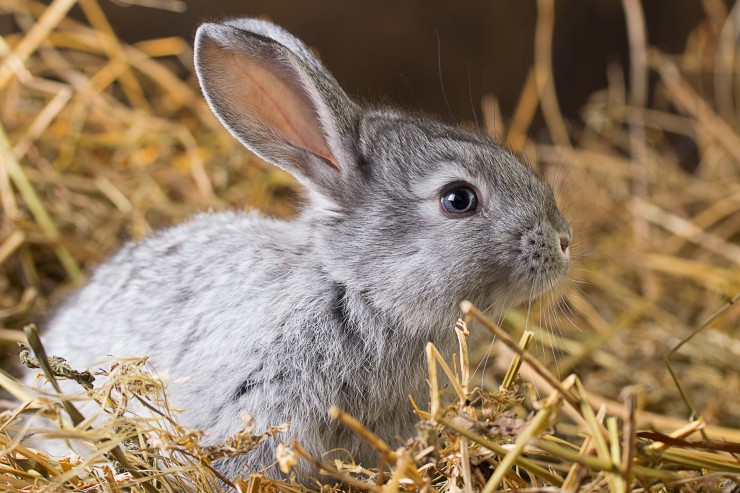Hamsters are very low-maintenance pets, unlike ferrets, dogs, cats and rabbits. This makes them perfect for people with active and busy lifestyles. They can be left alone during the day and not miss you a bit. (More than likely, they will have been sleeping all day, anyway.) They can even be left for a weekend, provided they have enough food and water. (Cleaning the cage before you go away for a few days is a good idea, too.) They do not get stressed or upset when left alone for the day or even a few days, so they don't hold a grudge. The fact that they are contained in a cage or aquarium lets you rest assured that they will not be destructive while you are gone, either. The fact that hamsters can survive quite well, even if left alone for a few days, make them great pets for children ?who might 揻orget?their pet for a day or two.
With all of that being said, hamsters do require some basic care. They require basic cage cleaning and feeding, but they do not require a lot of time outside of their cage. They can actually be kept inside of their housing area full-time, provided they have a large living space and have access to a wheel and other opportunities to exercise. (Please note that high climbing is not required or recommended for hamsters. They are ground dwellers, and their poor eyesight makes it difficult to judge heights well.)
Here are some care guidelines:
Clean your hamster's living area (meaning remove all bedding and replace it with fresh bedding) at least once per week. In between full cleanings you may simply remove the bedding from the area your hamster uses for waste elimination and replace that section of bedding. Once a month, remove all bedding and wash out the cage or aquarium, taking care to disinfect it with a weak bleach solution. (You can use a solution of one tablespoon of bleach per one gallon of water.) Make sure you do not wait until you notice an odor to clean your hamsters cage ?this is not healthy for your pet, and it is not pleasant for anyone near your pet.
Hamsters are natural hoarders and will stockpile food, so you cannot really overfeed them. Make sure you give them fresh food after you clean their living area. Check periodically to see that they have not run out of food, as this will stress your pet. Fresh produce and other fresh food you give need to be removed from the housing area within 24 hours, or it will begin to spoil. Do not give fresh foods just prior to leaving for a few days ?it might spoil while you are gone.
Water bottles should always have plenty of fresh water. Make sure you completely clean the water bottle (inside and out) at least once per week. Use a bottle brush (found with infant supplies in stores ?use the ones designed for baby bottles) and dish washing detergent to clean it. Bacteria can build up inside the water bottle if not properly cleaned, which can lead to illness. If the water bottle is damaged or leaks, replace it immediately ?wet bedding and food can be a nasty, smelly mess and can also lead to stress and illness for your pet.
Caring for Baby Hamsters
Whether you have had babies intentionally or came home from the store with a pregnant female, knowing how to care for baby hamsters is an important part of being a responsible pet owner.
The first thing to remember is that the mother does not need your help and she can have babies all on her own. You don't need to coach her on breathing or fetch hot water. Just let nature take its course.
Even though you want to look and touch the babies, make sure you do not disturb the mother or babies for at least 10 days ?preferably 2 weeks or so. If you touch the babies or upset the mother, the mother can abuse, neglect, abandon or even eat her little ones. The only thing you need to do for 10 to 14 days is to provide fresh food and water. Nothing else. Do not change bedding or clean the cage unless it is a dire emergency (such as if a water bottle leaks and wets a large portion of the housing area. If the bedding gets wet, it can become moldy and unsanitary ?which can also upset the mother hamster and cause her to not be a good mother to her litter. If you must do some cleaning, do a spot cleaning using a clean kitty litter scoop.
Provide mom with extra protein while she is nursing. You can add bits of hard-boiled egg and cooked chicken in addition to her regular diet. Making sure she has good nutrition will help make sure she does not hurt her babies. Poor nutrition for new mothers can cause stress for the mother hamster, and this can cause her to neglect or eat her babies.
Provide mom with nice, warm, bedding material - such as strips of toilet paper or specially manufactured bedding available commercially ?so the mother can provide a warm nest for her litter.
If you have an absolute emergency and you have no choice but to move the babies, use a clean, dry spoon to scoop them out and do not touch them under any circumstances. If you get your scent on the baby, the mother will more than likely cannibalize the poor baby.
Do not use a dish to provide water for the babies. They can nurse until they are big enough to drink from a water bottle bottle. Using a dish for water could cause a baby to stumble into the water dish and drown. (Hamster babies are born with their eyes shut and cannot see until they open, but they can wander around some before they can see.)
Finally, make sure you separate the males from the females shortly after they are weaned; otherwise you will have several more litters to raise. Syrian hamsters can breed as young as 45 days old. Dwarf hamsters can begin to breed at around 60 to 135 days. Aside from the fact that having multiple litters can be costly, frustrating and exasperating, females that have litters too soon are usually not very good mothers. They need time to mature before breeding.

 Grooming Tips For A Cairn Terrier Puppy
Grooming Tips For
Grooming Tips For A Cairn Terrier Puppy
Grooming Tips For
 Dog Training Help - Ten Top Tips
Dog Training Help
Dog Training Help - Ten Top Tips
Dog Training Help
 How To Feed Your Rabbit A Natural Diet
How To Feed Your
How To Feed Your Rabbit A Natural Diet
How To Feed Your
 How Do Working Dogs Communicate With And Alert Their Handlers Of Things?
How Do Working Do
How Do Working Dogs Communicate With And Alert Their Handlers Of Things?
How Do Working Do
 Dogs That Cannot Go Up And Down Stairs
Dogs That Cannot
Dogs That Cannot Go Up And Down Stairs
Dogs That Cannot